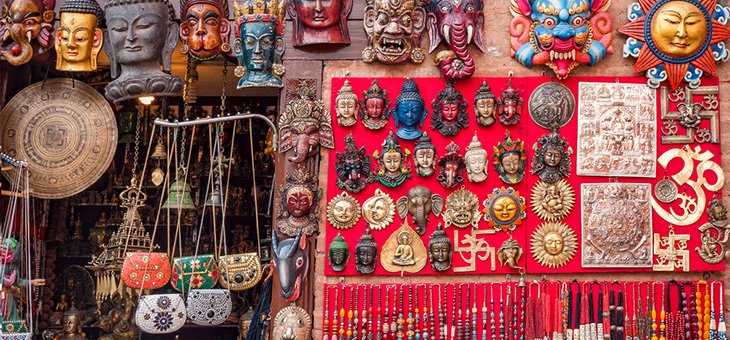Margaret is going to Bali soon and wants to know how to play it safe when looking for souvenirs for her family.
•••
Q. Margaret
I will be going to Bali in December, and because of the time that I am travelling, I am going to have to do a good deal of my Christmas shopping for family while I am there. This will be great in terms of the money I will save, but what things do I have to watch out for in terms of making sure the items get through customs?
A. The big things to look out for are food, plant material and animal items. These could introduce serious pests and diseases into Australia.
Australia’s department of agriculture has a list of some of the items that you need to be worried about when you are looking at bringing back souvenirs from overseas.
Here is what to look out for when you are doing your shopping this December.
Wooden items
Wooden items are allowed into Australia if they are free from bark, insects and signs of insect damage (such as borer holes) or any other contamination. To check for insect damage, look closely at wooden items for holes and sawdust. Wooden items must be declared on arrival and inspected.
Animal horns, teeth or bones
These are allowed into Australia if they are clean and free of contamination from seed, soil and animal or plant debris.
If contamination is found on the items they will be treated, exported or destroyed. Some animal horns and bones may be subject to the Convention on International Trade in Endangered Species of Wild Fauna and Flora (CITES). If your items fall into this category you can be referred to the Department of Home Affairs on arrival back in Australia.
Cosmetics
Cosmetic products are allowed into Australia if they are commercially manufactured and packaged.
Feathers (including down jackets, sleeping bags, pillows or quilts)
Feathers and items containing feathers are allowed into Australia from any country if they are manufactured items for personal use. You may bring up to 10 feather articles as a personal import.
Beeswax products
Beeswax products (including beeswax wraps, candles and furniture polish) are allowed into Australia. Beeswax products must be inspected to verify they are clean and free from insects, seeds or other contamination. The products must be clearly identifiable.
Fur, leather or skin products
Leather goods, hides, furs and skins that have been effectively and fully tanned are allowed into Australia. This includes items such as animal skin (leather) purses, shoes, wallets and belts.
Animal skin floor mats must be inspected to confirm that the item is fully tanned and to ensure they are free from contamination (e.g. animal tissue, soil, feathers, insects, seeds, bark).
These products could also be subject to the CITES regulations mentioned above.
Seashells, sand, rocks or fossils
Seashells (excluding oyster shells), sand, rocks and fossils are allowed into Australia if they are free from insects, soil, and animal and plant material. The items must be inspected on arrival to ensure they are free from infestation and contamination. Some seashells can be subject to the CITES regulations, see above.
Live plants
This is a no-no. Live plants will not be allowed into Australia.
Have you ever had a souvenir denied by customs? What was it?
If you enjoy our content, don’t keep it to yourself. Share our free eNews with your friends and encourage them to sign up.
Related articles:
Why are planes so cold?
No more missed connections
Qantas says bye to shonky scales

